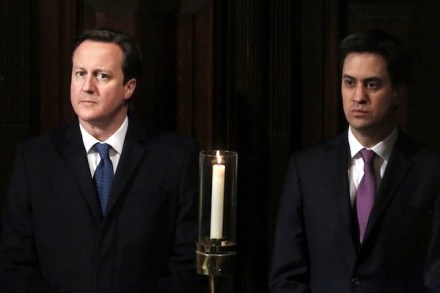The Tories can steal voters Labour has abandoned
Russell Brand made a good point on Question Time last night. If a party derives half of its funding from a group of people, it’s not going to do anything to annoy that group. He was speaking in the (incorrect) premise that the Tories are bankrolled by the banks, bit his overall conclusion was spot on. Ed Miliband’s Labour Party takes about 80% of its funding from the trade unions, which distorts the way it sees the world. With each major battle, Labour is not becoming the party of change. It is becoming the party of the bureaucratic empire, anxious to strike back. This opens up new electoral territory, which




















